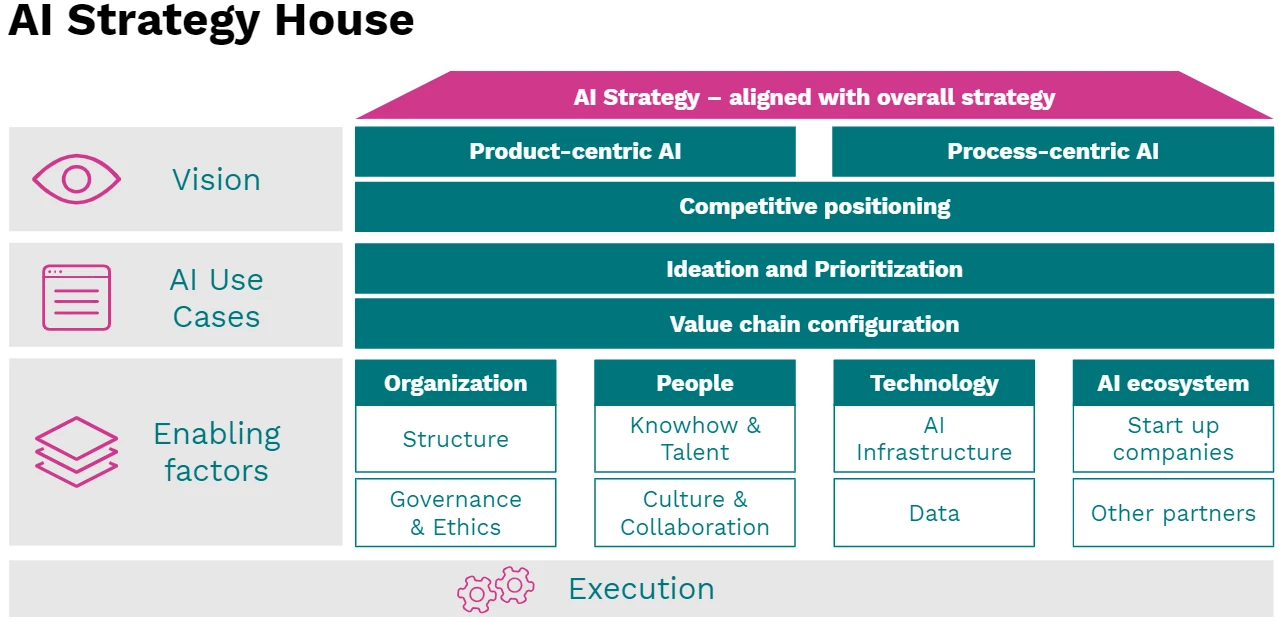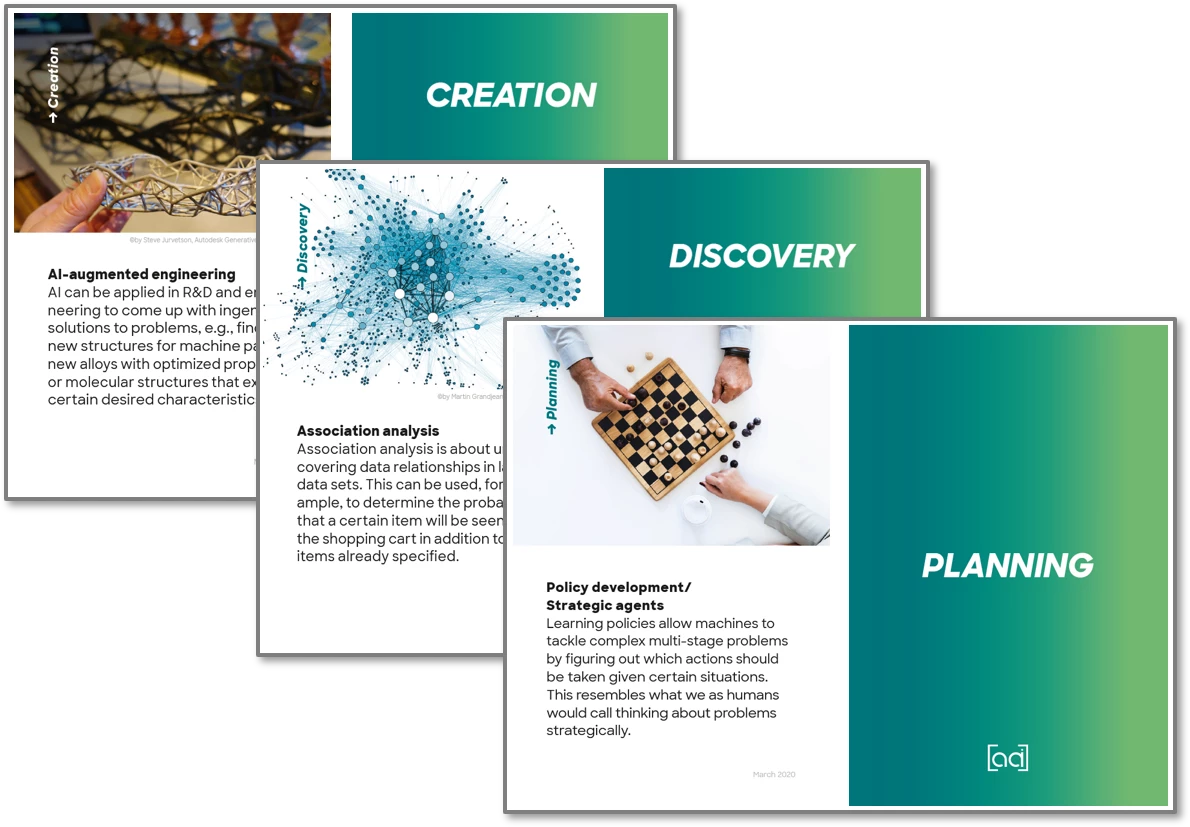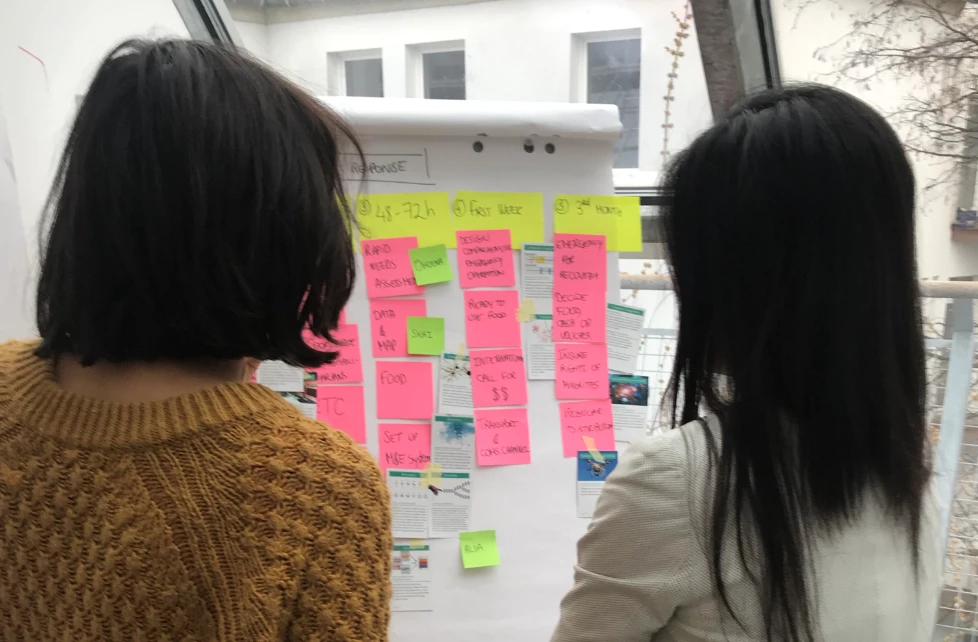UN World Food Programme: Achieving the goal of "Zero Hunger" with the help of AI
"The applied AI workshop helped us think through our AI strategy in a fun and structured way." - Fiona Huang, Frontier Innovation Consultant, WFP Innovation Accelerator
The United Nations World Food Programme (WFP) is the world's largest humanitarian organization fighting hunger, saving lives, and changing lives, supporting nearly 100 million people in around 83 countries every year. Their top priority is to achieve zero hunger by 2030, which is directly linked to the Sustainable Development Goal (SDG).
So how can AI help achieve this noble goal? To address this question, appliedAI is partnering with the WFP Innovation Accelerator, founded in 2016, which is dedicated to identifying, supporting, and scaling promising ideas and solutions for a world without hunger and famine.
On February 27, 2020, appliedAI joined the WFP Innovation Accelerator for an AI strategy workshop to support the WFP on its path to higher AI maturity.
Initial Situation and Problem Statement
At first glance, the WFP appears to face similar challenges to many other large companies when it comes to AI use cases. There have been some promising results in test cases, but there has been no systematic approach to conceiving, prioritizing, or implementing new use cases, leading ultimately to isolated developments with limited impact. Additionally, there is a lack of alignment on where these efforts should lead; there is no clearly articulated, coherent AI vision.
Furthermore, there are a number of unique challenges for the WFP: the organization is decentralized, which can make it harder to have a clear overview, communicate results, and promote initiatives efficiently. Data comes from all over the world with very different regulatory requirements, and while the Accelerator is fully dedicated to innovative solutions, there is no core KI team within the larger organization that could devote all its time to advancing this particular area of development. On the other hand, the results achieved by the solutions have the potential to immediately save thousands of lives.
In addition, the WFP has an immensely broad range of innovative products and services. As the very first step in developing an AI vision, it is important to look across the spectrum and then select those areas where the deployed team sees the greatest potential benefit in applying AI. Of course, defining clear focus areas becomes more complex as an organization's range of products, processes, and services increases.
Overall, the challenge for WFP was the lack of a systematic methodology for developing their AI strategy and, in particular, their AI vision, as well as an approach for finding the most beneficial use cases, prioritizing limited resources accordingly, and achieving the greatest impact.

Approach and Methodology
To address the challenging situation faced by WFP, a full-day workshop at the Accelerator in the heart of Munich was organized. Eight individuals, including employees and managers of the Accelerator with diverse backgrounds, participated. Some had extensive operational experience, while others had a technology and innovation background. These different skills proved to be very beneficial in addressing the diverse topics that awaited us that day.
The approach was twofold: first, we presented our methodology for developing an AI strategy. Second, we worked together on concrete use cases that would provide the Accelerator team with a solid foundation for their further work.
The methodology for developing an AI strategy begins with providing a framework, the appliedAI Strategy House. Basically, this is a model that encompasses all the essential parts of a thoughtful AI strategy, from the AI vision that defines where AI is headed, to use cases and supporting factors such as organization, people, technology, and ecosystem, to the execution of the AI strategy.

After providing the framework, a systematic process for the development of the AI vision was shared and carried out with the team. We had an extensive discussion about what the vision could look like, followed by the development of a first draft of a potential vision for WFP by the team.
Afterwards, the focus of the workshop shifted to the exchange and application of a structured process around use cases. We went through a systematic way of use case ideation, evaluation, prioritization, and execution. As part of the ideation process, we also introduced the appliedAI use case playing cards, which were creatively used by the team.

Results and next steps
The results of the workshop were, firstly, the identification of four specific products, processes, and services for which the team saw the greatest benefit in AI application, and the development of an initial draft for a potential AI vision that fulfills this benefit. Secondly, concrete use cases were creatively developed to implement the vision that the team wants to pursue within the organization. Finally, and most importantly, a clear methodology was developed for the development of a comprehensive AI strategy for the WFP.
The WFP team concluded that the development and implementation of an actionable and valuable AI strategy will require not only time but also the agreement of top management and employees on the ground.
As next steps, the Accelerator will promote discussions on AI topics between different country offices and business units within the WFP, while developing successful use cases to demonstrate the potential of AI.
The appliedAI workshop was the first step in building this AI competence. The workshop equipped the team with methods and tools to begin the challenging but exciting journey of using artificial intelligence to combat hunger, which appliedAI will continue to support the WFP on.
In cooperation with: UN World Food Programme
Do you have any questions regarding partnership? Talk to us
Unfortunately, we cannot display the form without your consent. We use Hubspot forms that set functional cookies. Please accept functional cookies in the settings to be able to use the contact form. Or write us an email: info@appliedai.de.
